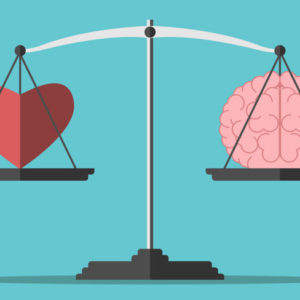
Quite simply, the ability to understand and control our own emotions and manage our interactions with others is having Emotional Intelligence. Just like we can measure intelligence with an IQ test, there are now assessments that measure emotional development, or “emotional intelligence”.
IQ= Intelligence Quotient | EQ = Emotional (intelligence) Quotient
There are too many competencies included in an EQ assessment to list, but below are 15 of the most practical skills that can be improved by working with a certified EQ professional:
Increase Emotional Self Awareness: recognize and identify feelings and how they are projected onto others.
Gain a more Accurate Self-Assessment: have a valid appraisal of one’s strengths and limitations.
Develop Empathy: sense others’ feelings and perspectives; take a sincere interest in seeing things from their point of view.
Improve Communication Skills: hone the ability to listen deeply and attentively; speak openly sending clear and comprehensive messages.
Build Trust: be able to trust others and be trustworthy
Fine-tune Leadership Skills: Inspire, motivate and guide others.
Become a Better Collaborator: be able to work synergistically with others for a common goal.
Learn Emotional Self-Control: keep intense emotions appropriately in-check.
Progress in Innovation and Creativity: become open and willing to embrace new ideas and think outside of the box.
Be Ready to take Initiative: become more proactive and persistent; responsive to opportunity.
Up your Influence: embrace a natural ability to change the hearts and minds of others in a meaningful way.
Strengthen Resilience: reinforce commitment and perseverance when things go wrong and the ability to withstand challenges.
Increase Conflict Management: effectively negotiate and resolve disagreement.
Super-charge your Achievement Drive: bump up willingness to continually learn and improve professionally and personally.
Refine Stress Management skills: bolster ability to stay calm and centered under pressure.

Most coaches will do an EQ 2.0 Assessment. The results will inform you of your strengths and areas in need of development.
Together with your EQ Coach you will create a plan to grow in the areas you prioritize.
Your EQ Coach will keep you motivated, hold you accountable and help you see your “blind-spots” so that you are successful.
Look for EQ coach training programs: There are several training programs that teach EQ to coaches. Most of them will have a directory of participants who successfully finished their program.
Ask your employer: Many businesses are now offering coaching to their staff to develop and retain staff.
Register: book with us today and we’ll find up to 3 coaches who specialize in EQ and are a good match all your needs.

